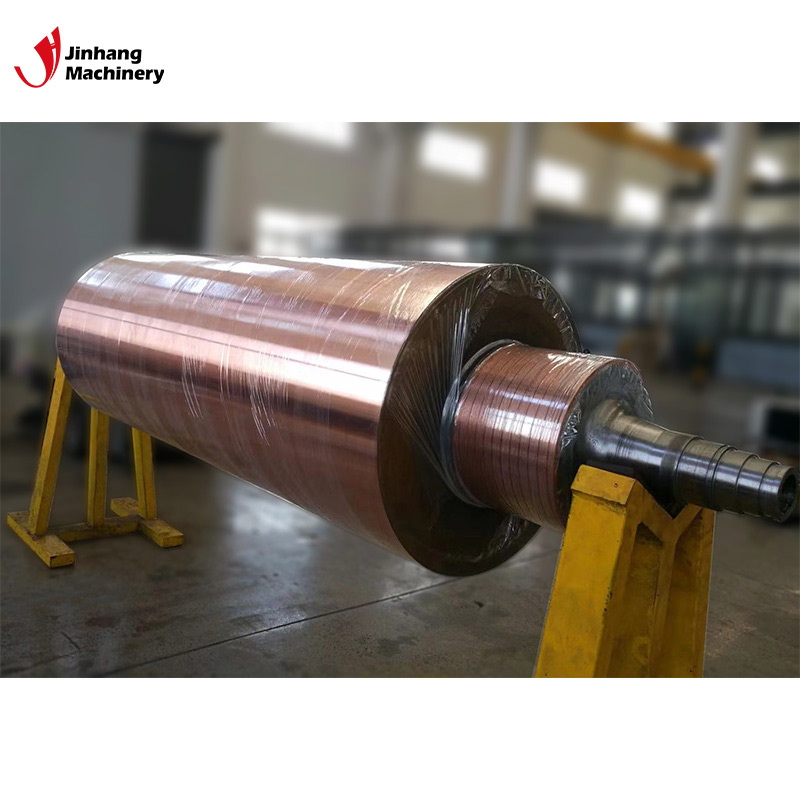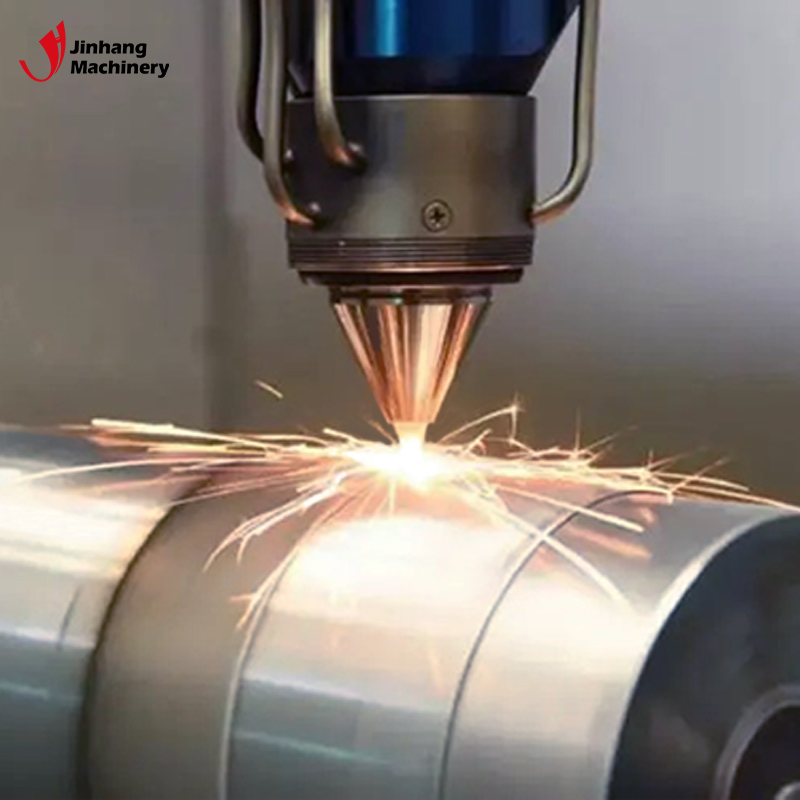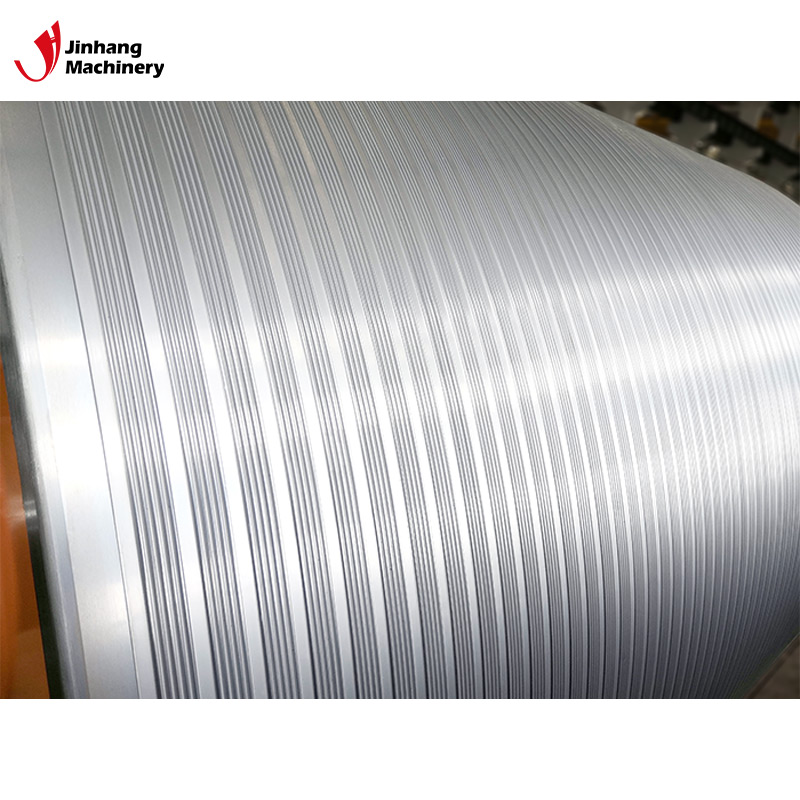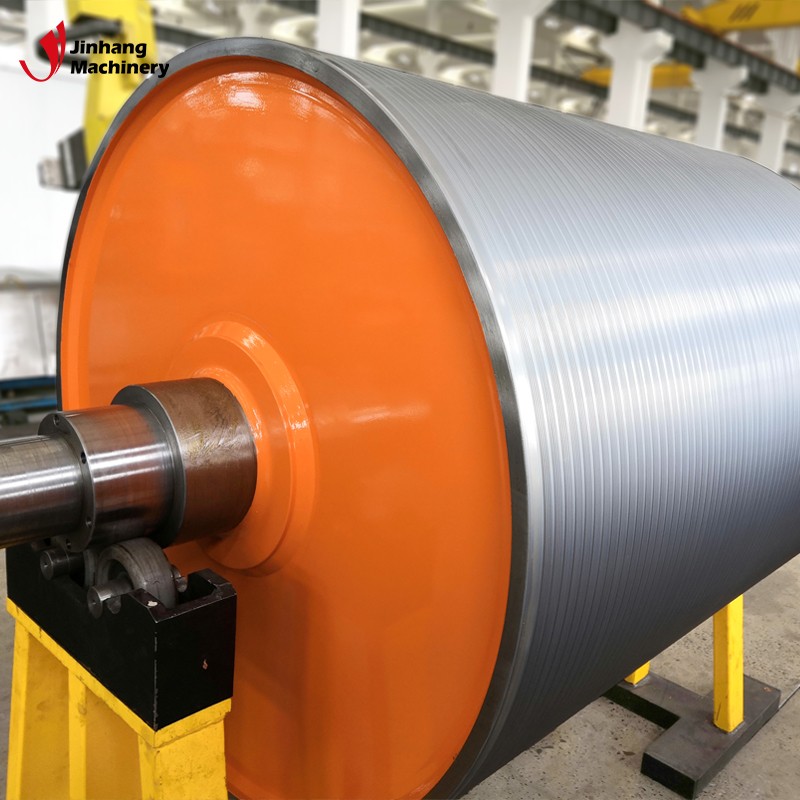Industrial Rollers: Which Steels Are Not Suitable for Chrome Plating?
In the manufacturing process of industrial rollers, chrome plating is a common surface treatment technology used to improve the wear resistance, corrosion resistance and fatigue resistance of industrial rollers. The chrome layer not only provides a protective barrier for the roller, but also increases its surface finish. However, despite the many advantages of chrome plating, not all types of steel are suitable for chrome plating. Choosing the wrong steel for chrome plating may lead to process instability, poor coating adhesion, and even serious performance problems.
This article will discuss in detail which steels are not suitable for chrome plating and explain why. At the same time, in view of the actual needs of industrial rollers, we will also discuss how to choose the right steel and what factors to consider to ensure the best results of the chrome plating process.

What does industrial roller chrome plating mean?
Before discussing steels that are not suitable for chrome plating, it is necessary to first understand the basic process and role of industrial roller chrome plating.
Principle of chrome plating of industrial rollers
Industrial roller chrome plating is an electroplating technology that immerses the substrate (usually steel) in an electrolyte containing chromate, and uses electric current to deposit chromium ions on the surface of the steel to form a thin and dense chrome coating. Chromium coatings generally have the following advantages:
● High hardness: The hardness of the chrome layer is extremely high, which can significantly improve the wear resistance of industrial rollers.
● Corrosion resistance: The chrome plating layer has good oxidation resistance and corrosion resistance, which can protect the roller from the damage of chemicals in the environment.
● Finish: The chrome coating has a smooth surface, which reduces the friction coefficient and allows the roller to maintain good performance during high-speed operation.
Application of chrome plating
Chromium plating of industrial rollers is widely used in various mechanical equipment, especially in high-precision and high-strength processing fields such as printing, plastic processing, and steel manufacturing. The chrome-plated rollers can not only withstand huge physical pressure, but also maintain stable working performance in long-term exposure to harsh working environments, such as high temperature, high humidity and strong corrosion industrial environments.
Despite the many advantages of the industrial roller chrome plating process, not all steels are suitable for chrome plating. Below we will discuss several types of steel that are not suitable for chrome plating and the reasons why.

Industrial Rollers: Which Steels Are Not Suitable for Chrome Plating?
Types of Steels Not Suitable for Chrome Plating:
1. High Carbon Steel
2. High Sulfur Steel
3. High Phosphorus Steel
4. Low Alloy Steel
1. High Carbon Steel Industrial Rollers
High carbon steel is a steel with a carbon content between 0.6% and 1.7%. This steel has high hardness and strength and is often used to manufacture high-strength mechanical parts. However, high carbon steel is brittle and prone to cracking or splitting.
Reasons Why High Carbon Steel Is Not Suitable for Chrome Plating
● Poor adhesion of the chrome plating layer: Due to the high carbon content of high carbon steel industrial rollers, the matrix structure of the steel is dense. When chrome plating, the chrome layer is difficult to adhere firmly to the surface of the steel, which can easily cause the coating to peel off or crack.
● Increased brittleness: High carbon steel itself has a large brittleness, and the coating after chrome plating may further aggravate this problem. Under extreme stress or temperature changes, the chrome plating layer is prone to peeling or partial cracking, affecting the service life of the roller.
Therefore, high carbon steel is not suitable for chrome plating, especially in situations where it needs to withstand frequent impact and vibration.
2. High sulfur steel industrial roller
High sulfur steel contains a high sulfur element and is usually used as free-cutting steel. The advantage of high sulfur steel is good processability and is suitable for the manufacture of parts that require a lot of turning or milling. However, the presence of sulfur will lead to a decrease in the overall performance of the steel, especially in terms of toughness and corrosion resistance.
Reasons why high sulfur steel is not suitable for chrome plating
● Unstable coating quality: Sulfur is a harmful element that affects the stability of the chrome plating process. High sulfur steel industrial rollers are prone to uneven coating during the chrome plating process, resulting in unstable coating quality and even defects such as bubbles and depressions.
● Increased corrosion tendency: The presence of sulfur will aggravate the electrochemical corrosion of steel, form corrosion pits or cracks under the chrome plating layer, and reduce the corrosion resistance of the roller.
Therefore, although high-sulfur steel has advantages in certain processing areas, it is not suitable as a substrate for chrome-plated industrial rollers.
3. High-phosphorus steel industrial rollers
High-phosphorus steel is a type of steel containing a high phosphorus element, which is usually used to manufacture structural parts with high toughness requirements. Phosphorus can increase the hardness and strength of steel, but it will significantly reduce the ductility and welding performance of steel.
Reasons why high-phosphorus steel is not suitable for chrome plating
● Embrittlement of chrome plating layer: Phosphorus is an element that makes steel brittle. High-phosphorus steel itself has a certain brittleness, and chrome plating will aggravate this brittleness phenomenon. Under high load and high temperature environment, industrial roller coating is prone to cracks.
● Unstable chrome plating process: Phosphorus element will affect the deposition process of chrome plating, resulting in insufficient adhesion of the coating, easy peeling or delamination of the coating, affecting the service life and function of the roller.
Therefore, in the manufacture of industrial rollers that require chrome plating, high-phosphorus steel is also not a suitable choice.
4. Low-alloy steel industrial rollers
Low-alloy steel is a type of steel with a small amount of alloying elements (such as chromium, nickel, molybdenum, etc.) added. This type of steel has certain corrosion resistance and wear resistance and is widely used in various mechanical structural parts. However, the addition of alloying elements will affect the chemical reaction of steel during the electroplating process.
Reasons why low-alloy steel is not suitable for chrome plating
● Poor coating adhesion: The alloying elements in low-alloy steel will interfere with the electrochemical reaction during the chrome plating process, resulting in uneven deposition of chromium ions on the steel surface and reducing the adhesion of the coating.
● Unstable coating quality: Low-alloy steel industrial rollers are prone to uneven coating and peeling during the chrome plating process, which is mainly due to the complex chemical reaction between the alloying elements and the chromates in the chrome plating solution.
Therefore, low-alloy steel should also be carefully selected in situations where chrome plating is required.

How to choose the right steel for chrome plating?
In order to ensure that the chrome plating layer works best on industrial rollers, it is crucial to choose the right substrate. Here are a few factors to consider when selecting steel:
Steel Chemical Composition
The chemical composition of steel has a direct impact on the chrome plating process. Choosing low-carbon, low-sulfur, and low-phosphorus steel can effectively avoid quality problems with industrial roller coatings. Generally, low-carbon steel and medium-carbon steel show good adhesion and coating quality during chrome plating.
Steel Mechanical Properties
When selecting steel, its mechanical properties, such as strength, toughness, and ductility, should also be considered. Industrial roller chrome plating usually works in high stress and high temperature environments, so the steel must have sufficient toughness and fatigue resistance to ensure that the coating will not crack or peel off due to insufficient performance of the base material.
Use Environment and Load Conditions
Different industrial applications have different requirements for the use environment and load conditions of industrial rollers. If the roller needs to work in a high temperature, high humidity or highly corrosive environment, a steel with good high temperature resistance and corrosion resistance must be selected, and the mechanical strength of the steel should be sufficient to support the chrome plating.

Buy Custom Industrial Rolls at Low Prices – JH Machinery
Looking to purchase customized rolls at affordable prices? JH Machinery is your trusted supplier for high-precision rolls designed for a range of industries, from metallurgy to packaging. Our rolls are available in various forms, including rubber, polyurethane, and tungsten carbide-coated rolls, all engineered to meet your specific needs. We offer bulk discounts, wholesale pricing, and special promotions to ensure you get the best deal!
